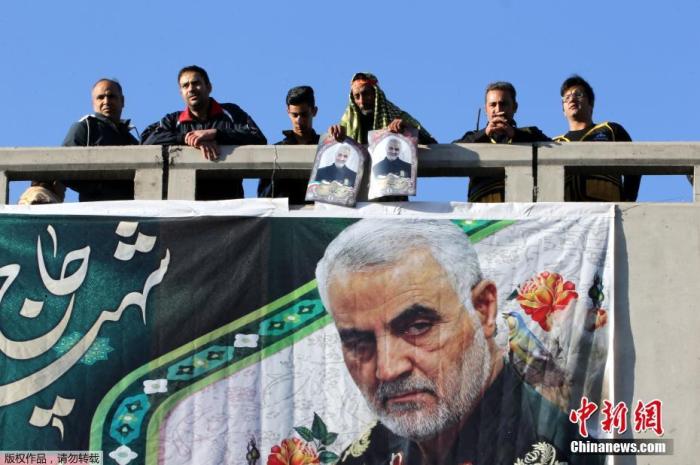China News, June 30, comprehensive report, the Iranian judiciary issued an arrest warrant on the 29th to US President Trump and dozens of others, saying it involved the attack and death of Iran’s "Holy City Brigade" commander Sulaymani, and Request the assistance of Interpol. Interpol subsequently issued a statement stating that “this type of request will not be considered”.
American media commented that Trump was not in danger of being arrested. But these allegations highlight the increased tension between the United States and Iran since Trump unilaterally withdrew the United States from the Iran nuclear agreement.
Data graph: US President Trump.
Iran issued arrest warrant to dozens of people including Trump
According to the News Agency of the Islamic Republic of Iran (IRNA), Iran has accused Trump and another 35 people of the operations involving the killing of Iranian commander Sulaymani. Tehran prosecutor Ali Alqasimehr said they faced "crime of murder and terrorism".
The report also stated that Trump is the "number one defendant", "even if his term ends, the prosecution against him will continue." With the exception of Trump, Akashmir did not provide the names of others.
Regarding the issuance of an arrest warrant by Iran, the US Special Representative for Iranian Affairs Hook responded, "This is just a publicity stunt." He said that this move was "political in nature" and the US assessment was that Interpol would not issue such a wanted order.
On January 7, local time, the body of Iranian commander Sulaymani arrived in his hometown of Kerman. There were as many people mourning as there were people in Tehran the day before.
Trump is not in danger of being arrested?
On the 29th, Interpol issued a statement saying that it “will not consider requests of this nature” and added that, according to the organization charter, Interpol does not participate in any “political, military, religious and ethnic activities”.
The Associated Press said it meant "Trump is not in danger of being arrested. But these allegations highlight the growing tension between the United States and Iran since Trump unilaterally let the United States withdraw from the Iran nuclear agreement."
NPR also pointed out that "Trump is not facing a real threat of arrest, but the new allegations provide new evidence that there is no sign of easing tensions between the United States and Iran."
On January 5th, local time, the people of Houston, a major US oil town, held an anti-war rally, condemning the US military’s killing of the commander of the Holy City Brigade, Kasim Sulaymani, of the Iranian Islamic Revolutionary Guards, and opposed the increase of US troops to the Middle East. The decision of about 3,000 soldiers. The picture shows the rally people holding the slogan "No war against Iran". China News Agency reporter Zeng Jingning
Memorabilia
----The United States withdrew from the Iran nuclear agreement in 2018
In 2018, US President Trump withdrew from the Iran nuclear agreement and re-imposed severe economic sanctions on Iran, resulting in the rapid deterioration of US-Iranian relations.
-Tension in the Persian Gulf in 2019
In 2019, as tensions in the Persian Gulf continue, the United States sends aircraft carrier strike groups and B-52H bombers to the Persian Gulf. Between May and June, six oil tankers were attacked and exploded in the Gulf of Oman, while the Iranian army shot down American drones flying over the Strait of Hormuz.
In December, an American military base was attacked in Iraq, killing an American citizen. The United States accused the Iranian-backed Iraqi militia and retaliated with air strikes. Members of this militia group surrounded the American Embassy in Baghdad to protest.
-Tension will escalate in 2020
On January 3, the United States launched an unmanned fighter plane air attack on Iraq’s Baghdad International Airport, killing Iran’s “important person” Sulaymani, who is responsible for military operations in the Middle East.
On January 8, in retaliation for the killing of Sulaymani by the US military, the Iranian Islamic Revolutionary Guards successively launched missile attacks on multiple US military bases in Iraq.
On February 13, the US Senate voted to pass a resolution on war powers to limit Trump's future military actions against Iran.

